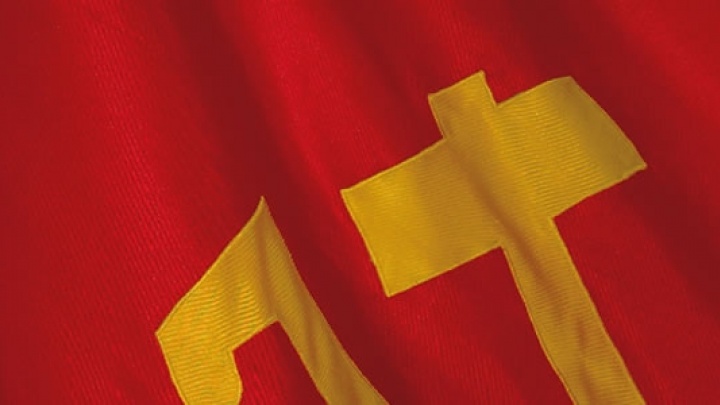Translated "Avante!" article by Luis Carapinha, Member of the International Department
A barely audible battle is carried out throughout the post-Soviet immense territory, round the demarcation and rearrangement composition of influence and domination spheres.
Externally, a reality which highlights the contradictions’ aggravation among powers, but cannot be abstracted from the real axis from imperialism’s chock with the Russian Federation, within a framework of the capitalist crisis aggravation. The greed for natural resources and new markets, the restraint and elimination of an adversary, although, powerful at the military, political and economic level ( in WB, 5th world GDP ,‘in 2012, in terms of purchase power); the “geopolitical agenda” imperatives, namely the attempt to be an obstacle to Russia’s re -composition of regional influence ( such as the Customs Union with Byelorussia and Kazakhstan along with the subsequent project of establishing the Euro- Asian Economic Union, in 2015) and subvert cooperation with China and the articulation of the emergent powers at a regional(OCX) and worldwide( BRICS) levels, are important factors concerning the offensive and pressures towards Russia’ “Putin egime”.
Therefore the continuous cavalcade towards the east of NATO and the USA’s anti-missile shield execution project, which count with the EU’s support and participation.
Expansionist dynamics in which the ill-fated EU concentration policy is inscribed, crossed by a deep crisis and also by deep changes, revealing the EU’s founder matrix and its irreparable imperialist nature. The awaited signing of the association agreement with Ukraine ( Georgia and Moldavia are also in the line) during the EU’s Oriental Partnership Summit, in Vilnius, next month, proves it. It represents an agreement which carries in itself a leonine free trade treaty and the imposing of unequal conditions and exploitation relations of a neo-colonial nature. One must recall Brussels is no more in the condition of ( and has no time) offering” a full integration perspective concerning the new EU ex-Soviet satellites to which the unilateral incorporation is demanded [of the duties] to the communitarian acquis.
The association regarding the EU, challenges the exercise of state sovereignty by Kiev. A step which is in accordance with the sovereignty and independence proclamation process of the former Soviet Republic of Ukraine, in 1990-91, a mark of the URSS dismantlement. The dominant ideology flounders the nationalism banner and gives place to national division, which trespasses Ukraine, the second greatest European country, which current boarders, however, result and come from the Soviet period. But what is essential is not to loose sight of the class fundamental dimension. The agreement which seals the capitulation before the EU ( and inevitably replaces in the agenda the NATO integration issue, contradicting Ukraine’s neutrality, consecrated constitutionally) will be signed, not by an “orange arch” government, but instead, by the Region Party power, which electoral support basis, is foremost amid the country’s East and South regions, the majority being Russian. Equally, amid the Ukrainian parliamentarian arch, it is symptomatic that Kiev’s “European option” gathers the consensus of the mentioned Region Party, of orange liberal opposition and post-orange ( with the EU demanding as a condition the signing of the Timochenko liberation agreement!) and the ultra-nationalist and pro-Fascist party, “ Freedom”. Only but the Ukrainian communists have a word against the agreement with the EU.
To elevate social struggle and solidarity among forces, which confront the current offensive against workers’ and peoples’ rights, is a demand of our times.


